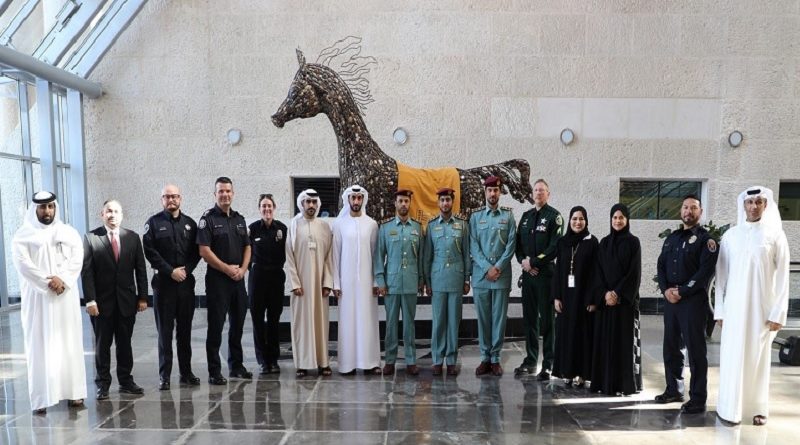ADJD presents its judicial and legal services to US, Canadian police delegations
ABU DHABI: The Abu Dhabi Judicial Department (ADJD) received a delegation from the UAE’s Ministry of Interior and a police delegation from the United States of America and Canada.
This came as part of ADJD’s endeavour to strengthen cooperation, partnership and exchange of knowledge in areas of common interest, in accordance with the directives of H.H. Sheikh Mansour bin Zayed Al Nahyan, Deputy Prime Minister and Minister of the Presidential Court, and Chairman of Abu Dhabi Judicial Department, to exchange experiences with local and international authorities, with a view to adopting and implementing global best practices.
The visiting delegation learned about the different sections and chambers of the courts, the applicable regulations, the initiatives taken by the ADJD for the creation of specialised jurisdictions for foreigners, the pioneering experience of remote litigation, whether at the stage of registration of petitions and cases or at the case preparation and trial stages, as well as self-registration services via the Judicial Department’s electronic portal and the Smart Case File, court proceedings by videoconference in all cases which allow parties to attend hearings from anywhere, as well as the guidelines related to payment orders in commercial matters, receivership, cheque execution and the work of the Case Management Office.
During the visit, the delegation learned about the key role performed by the Foreign Experts Court within Abu Dhabi Judicial Department, in that it offers an advanced judicial system that provides significant support to the economy of the emirate of Abu Dhabi, by delivering a world-class service that meets the expectations of residents and investors of various nationalities.
The members of the delegation also viewed a number of awareness-raising films that embody ADJD’s message in its interaction with society for the establishment of the culture of law, and support the achievement of its qualitative objectives of consolidating knowledge and promoting respect for the law, so as to ensure the protection of all society’s members against the commission of criminal acts and avoid their corollary of consequences that could negatively affect their future.
They were also introduced to educational material focusing on the introduction of new or amended laws and intelligent services.

